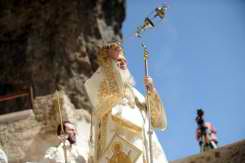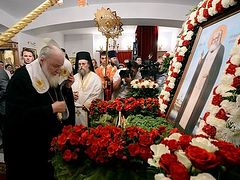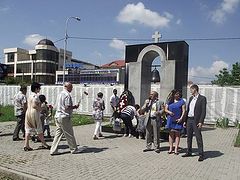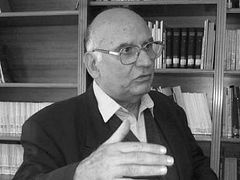
During the service Ecumenical Patriarch Bartholomeos, the head of the Eastern Orthodox Church stated: “After 88 years, the tears of the Virgin Mary have stopped flowing.”
Greece’s Prime Minister George Papandreou who spoke after attending mass on the Cyclades Islands off the Greek mainland, welcomed the: ”historic and important event.” It was a sign of bilateral rapprochement with Turkey and reflected “a spirit of cooperation and peace between us and our neighbour”.
The site is of particular importance to Pontian Greeks, whose ancestors fled the region around the Black Sea during fighting after World War I and dispersed in Greece and Russia. When Turkey fought Greece between 1920-22 during its War of Independence, several tens of thousands of Pontian Greeks were massacred as they went into forced exodus.
On Sunday around 500 Pontians were allowed into the 4th monastery, while about 2,000 others from Istanbul, Greece, Russia and Georgia watched the mass on a giant television screen outside.



